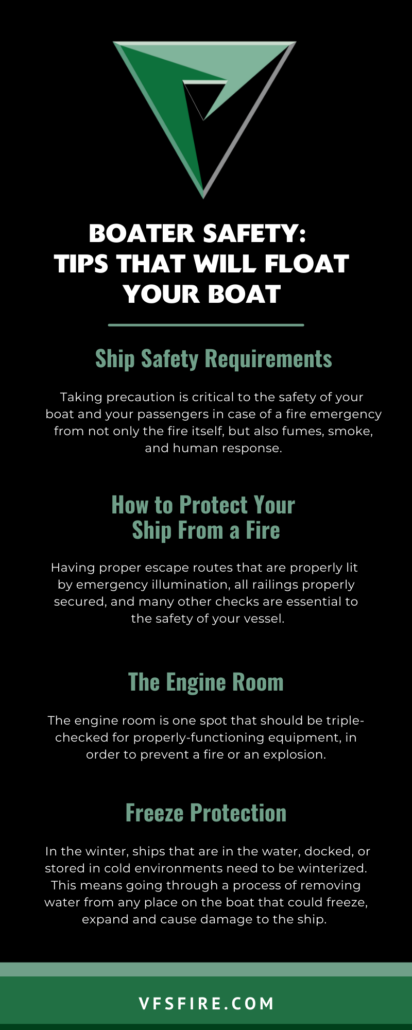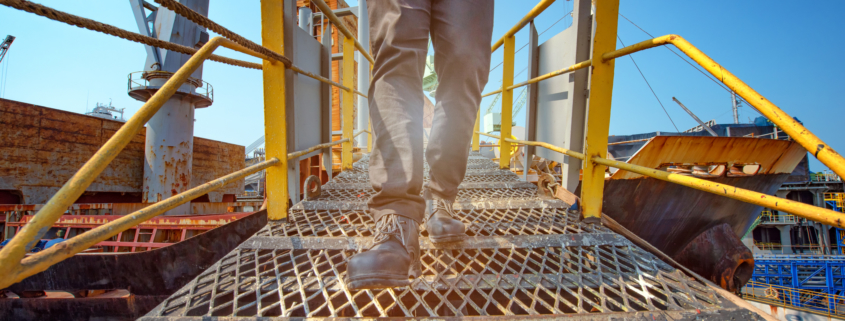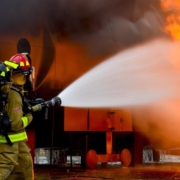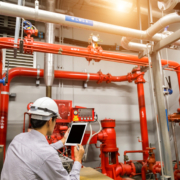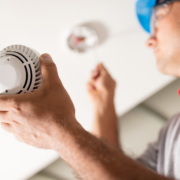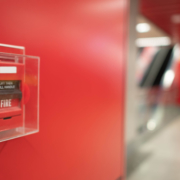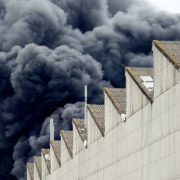Boater Safety: Tips that Will Float Your Boat
Yes, typically water does put out fires… However there are times when fire can occur on water. There is an extremely high fire risk on boats and marine machinery. It’s important to understand what preventative measures should be taken in order to avoid fire hazards on marine machinery. So, how do you prevent fires on your boat?
Let’s dive into tips that will help keep your boat afloat.
Ship Safety Requirements
The National Fire Protection Association (NFPA) Code 301 is the “Code for Safety to Life from Fire on Merchant Vessels.” This code focuses on the construction, arrangement, protection, and space utilization of merchant vessels that aim to limit the danger.
Taking precautions is critical to the safety of your boat and your passengers in case of a fire emergency, not only from the fire itself, but also from fumes, smoke, and human response.
Having the proper amount of fire extinguishers on your vessel is a great start, however, it is not the whole picture. There are additional elements of preparedness that you should have in place to keep your ship safe.
How to Protect Your Ship From a Fire
The steps mentioned above are considered large-scale. Let’s dive into the nitty-gritty details of boat safety.
Ships Business provides some insight into what should be checked in your engine room to ensure proper safety.
Some of these items include:
- Having proper escape routes that are properly lit by emergency illumination
- All railings on the boat are properly secured
- There are more than enough life jackets per person that are easily accessible
- All safety signs are updated and easy to read
- Escape routes are not blocked
- All portable fire extinguishers are correctly stored and up-to-date on inspections
- Anyone onboard the ship is wearing the proper protective gear depending on the type of boat
- Prevention of steam, water, or oil leaks in the machinery space
- Pipe insulations are oil-free
- Walkways, stairways, and ladders are clean and dry
- Any supplies and materials are properly stored
- Approved first aid supplies are readily available, accessible, and clearly marked
These, among many other checks, are essential to the safety of your vessel.
The Engine Room
The engine room of your vessel is one spot that should be triple-checked for equipment that is functioning properly, in order to best prevent fire or an explosion. It’s a place that heats up quickly and may contain flammable items. One of the major fire safety requirements in the engine room is to install automatic fire suppression systems. About 90% of marine fires start in the engine room.
Another simple way to prevent fires on your boat is to keep everything clear and organized. When you check that your equipment is working, it’s important to familiarize yourself with where everything is located in case an emergency arises and you need to quickly navigate the space.
Freeze Protection
Yes, boats can freeze. In the winter, ships that are in the water, docked, or stored in cold environments need to be winterized. This means going through a process of removing water from any place on the boat that could freeze, expand and cause damage to the ship.
When temperatures drop below freezing, water inside the engine or gears can cause cracks or blockages. The damage they cause will result in expensive repairs.
Remember that a heat lamp is not a good substitute for winterizing your boat. They may cause an unexpected and unwanted fire. According to Xtreme Heaters, “the leading causes of winter vessel fires are unattended portable heaters and overtaxed electrical systems.” A portable heater as a substitute for winterizing your boat is unpredictable because it can be tipped over by waves or other elements– causing a dreaded fire.
Marine Fire Safety
While you’re on the water, whether it be for pleasure or work, marine fire safety and preparation cannot be overlooked. Having the right fire safety equipment and performing the right maintenance and routine inspections may be the difference between life and death.
Our VFS team is prepared to get your vessel in tip-top shape with the right marine fire safety equipment. In fact, the VFS Houston Team has been continuing to grow our marine department and has recently acquired four new Tug & Barge Companies—bringing their annual total of vessels to perform fire safety inspections and testing to approximately 375.
As we approach the highly anticipated boating season, what summer shouldn’t bring is more fire hazards! Learn more about fire safety on a ship in our article here.
